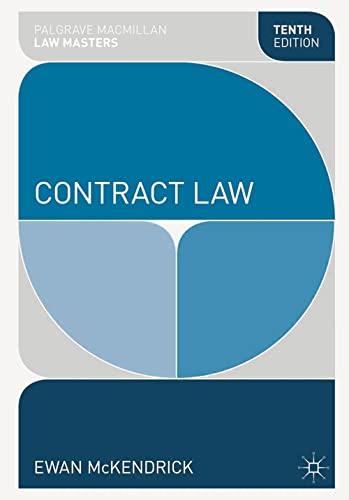1. 3. 4. Parol Evidence rule that the contract is ALL in writing. Giselle will want to argue this because the provision in the written document provides a good argument to any action by Bea who will alternatively argue the exception to the parol evidence rule that the contract is partlyr written and partly oral. [Lian Den Esschert v Chapplel 1- Students should consider both arguments but it is most likely that Bea will not succeed in his argument because where there is a conflict between the oral discussion and the written document, the latter prevails. On the facts, therefore, Giselle is likely to succeed in her argument. For the same reason as set out above, Bea will most likely not succeed in arguing collateral contract as per De LaSalle v Guildford meaning the statements by Giselle were intended to have contractual significance and one of the parties would not have entered into the main contract without it. Bea cannot argue that the oral conversation between her and Giselle was collateral to the main contract because there is a conflict between the oral statement and the written document (original contra replica] Bea could argue that the statement is a term of the contract as per m Bentley Motors and then argue whether it is a condition {Poussard v Spiers} or a warranty iBettini v Gyel. However, this argument is likely to fail because the oral statement contradicts the written word. If Angus argues that the statement is a mere representation {Oscar Chess v Williams}, Bea may have a better chance of success in terms of her legal claim. Bea can argue that if the oral statement is a mere representation, that could lead to an action in misrepresentation - Innocent [Derry v Peek], Negligent (Esso Petroleum v Marden or Fraudulent [Derry v Peek). The facts do not indicate whether Giselle believed what she was saying to be true so each type of misrepresentation will need to be discussed. The student may discuss the 3 different types of mistake - unilateral, mutual and common. None is likely to succeed here. 1- Unilateral - no unilateral mistake here because the provision was in the contract for all to read. 1' Mutual - no mutual mistake because the parties are not at cross purposes here. 1' Common mistake - no common mistake because the subject matter of the contract (the chair} has not ceased to exist







